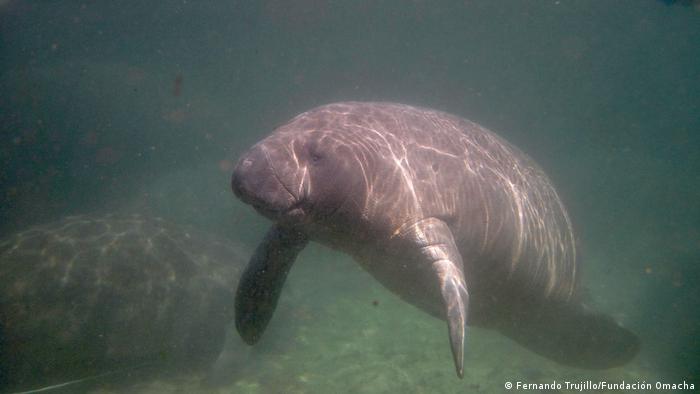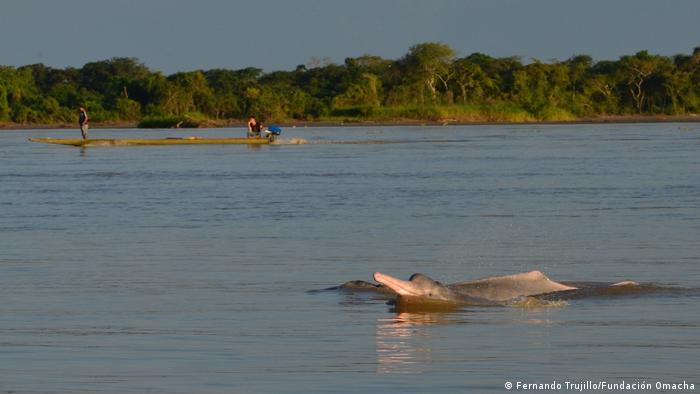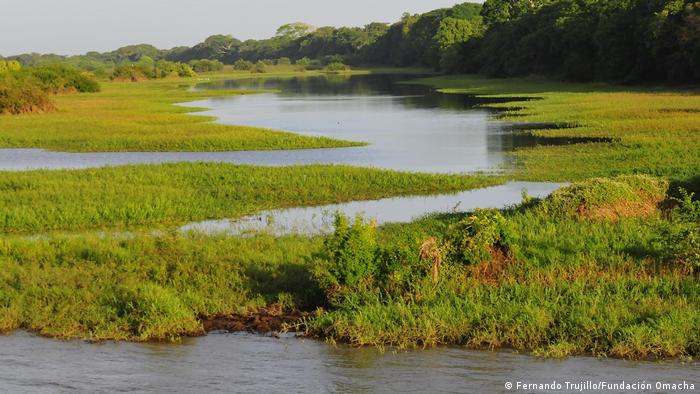Venezuela is known for its particularly species-rich Flora and Fauna known. But this is now threatened by the severe political and economic crisis in the country. Experts talk of an impending Ecocide.

Endangered species in Venezuela is not good, because you will not be protected in the country already sufficient, illegally hunted or their habitat destroyed. For this purpose, the unbridled exploitation of resources and lack of funding for the research comes. But now, the environment is facing in Venezuela new problems.
The depth of the economic, social and political crisis in the country affected in a dramatic way, the Ecosystems of one of the most species-rich countries of South America, in the unanimous opinion of experts. The effects of this crisis are complex. “Universities and institutions have reduced their research projects or even completely deleted. Many Research workers have emigrated,” said the biologist Yurasi Briceño from the Venezuelan research Institute, IVIC, compared to the DW.
The biologist Antonio Machado-Allison argues that “since the inception of the current regime, a continuous degradation of all institutions has taken place, for the protection of the natural resources and their exploration is responsible.”

An Amazon river Dolphin swims in the Orinoco river, the fourth largest river in the world.
This rooms to the destruction or fragmentation of natural habitats, loss of species and damage to sensitive Ecosystems, as for example the so-called “Morichales”, a unique tropical-humid landscape with Moriche palm trees in Venezuela.
An inventory is difficult, because currently many of the available data on the Fauna and Flora are inadequate or outdated. “We simply do not know what is the status of certain types of areas are located,” explains Fernando Trujillo, the scientific Director of the Colombian environmental NGO “Omacha”.
Hunting and consumption of dolphins and manatees
Yurasi Briceño studied one of the smallest dolphins in the world, the Amazon river Dolphin, in the Maracaibo lake. There, she witnessed how poverty and Hunger brought people to hunt the rare animals. Even though the hunting of these dolphins is banned in Venezuela for more than forty years. However, people act out of sheer Need. “Since 2017, the minimum wage is not enough in the country and there is access to proteins is missing. As the people resumed the hunting of wild animal species,” explained Briceño.
There are even criminal gangs that had specialized in hunting mammals. “From a Dolphin, you get about seven to eight pounds of edible lean meat,” says Briceño.

Landscape in the Orinoco river basin.
Also, the hunting of manatees (Caribbean manatee) has increased. “In the past, there were only occasional reports of manatees that were killed by Poachers, now there are about three per month. In the case of the dolphins there are four to five per month, sometimes per week. This is very serious, because the stock is destabilizing rapidly,” warns biologist. Also, the Colombian environmental expert Fernando Trujillo is worried: “There are only a few of these manatees. For a long time they were hunted, caught accidentally in fishing nets and are eaten.”
Animals from the Zoo stolen and eaten
The biologist Briceño also points to the fact that the staff is thinned out in the nature conservation areas and no longer have the resources to protect the animals. Not only are water-threatened mammals. “It’s also about birds, sharks, or turtles. In the case of absolutely all types, we have to pay higher catches than before.” According to the media, animals reports, in Venezuela, even from the Zoos stolen in order to eat or sell.
The unhindered mining is a further Problem that the environment in the country difficult, especially in the so-called mine-bow on the Orinoco river, with its rich diamonds, Coltan and gold deposits. “In the vicinity of Ciudad Bolivar, where bauxite is mined, one sees everywhere only dust, if you sail on the Orinoco river. It is a completely overexploited Zone in which there is no control over the discharge of mining waste into the river,” warns Fernando Trujillo.
The renowned biologist Antonio Machado-Allison is convinced: “in the last few years, induced disaster of gigantic extent and result of a policy that leads to Ecocide in the previously pristine and vulnerable nature areas”.